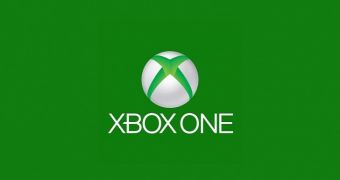In spite of the rocky start due to the PR fallout following the Xbox One's announcement last year, Microsoft's console managed to get off to a pretty good start.
Its main competitor, the PlayStation 4 computer entertainment system from Sony, performed much better though, and was pretty quick to greatly overtake the Xbox One.
Sony reported at Gamescom last week that sales of its hardware went over the 10 million units sold mark, while the last data from Microsoft, dating from back in April 2014, only tells of 5 million units sold.
As opposed to the PlayStation 4, which is available in over 72 countries already, the Xbox One was only officially launched in 13, with 26 more to join the list this September.
With brand new markets to expand to, including some pretty big ones, such as Japan, China, Korea and India, Microsoft might just manage to catch up to the PlayStation 4, especially now that a Kinect-less version of the console is already available, at a much more attractive price point.
Microsoft India's Director of Interactive Entertainment Business Anshu Mor revealed his thoughts regarding the future and past of the Xbox One to GamingBolt:
"On a broad level, in the earlier phase, I think the lack of availability of a standalone SKU was surely a factor that played into it. Not many people were able to understand why they should pay more for a Kinect experience, although there are enough and more reasons why they should pay," Mor stated.
"I think in terms of messaging, it wasn't really clear. But you know, after June, when we launched the standalone, we've received a tremendous response from the consumers, and given the lineup that we have coming up, including Halo, we're very confident of doing great things across the world, especially in India," he concluded.
The Xbox One will reach India on September 23, along with 25 other markets, which should help Microsoft's Xbox One compete with the PlayStation 4 on a equal footing, at least in terms of territories it's available in.
The lack of a Kinect, translated into a much more attractive price for the console, along with some pretty high-profile exclusive games coming the Xbox One's way this fall and at the start of next year might help the company gain some traction in Asia.
The Chinese market is a huge one, and even though some popularity polls showed a pretty low overall interest in the Xbox One, much lower than in the PlayStation 4 anyway, the fact that Microsoft's device will be the first to permeate the market after a 14-year ban on consoles could translate into a lucrative opportunity for the Redmond-based corporation.

 14 DAY TRIAL //
14 DAY TRIAL //